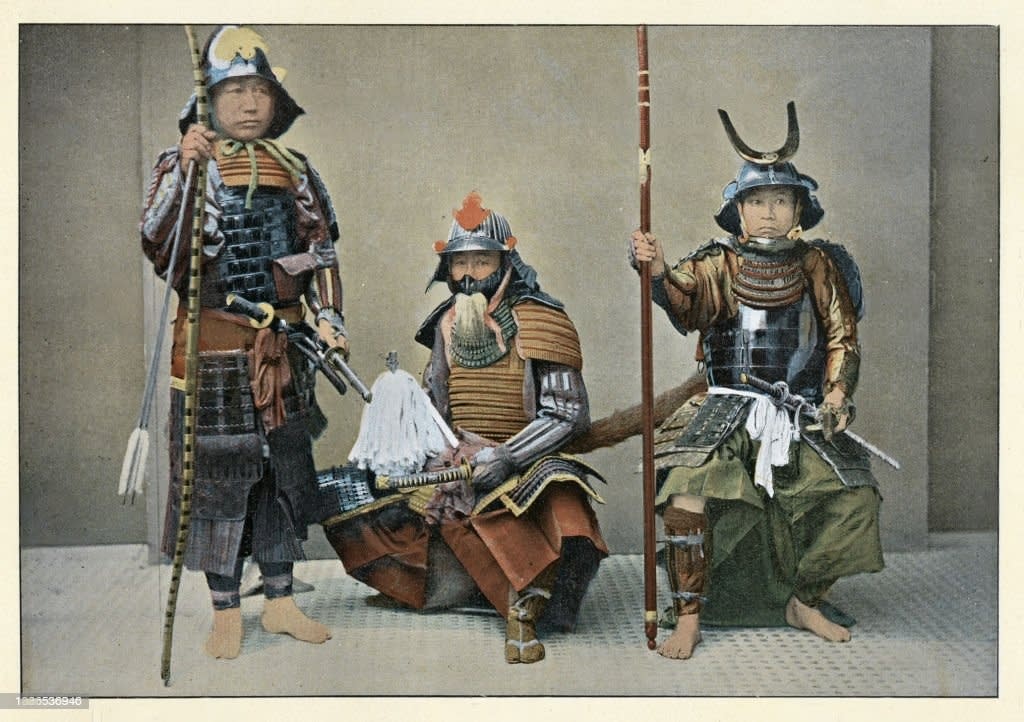The Rise and Potential Triumph of Christianity in 16th Century Japan
Exploring an Alternate Timeline

Japan, Jesus, and two things that sometimes combine. Today, Japan is largely irreligious, with one of the highest percentages of atheists in the world. Temples are visited frequently, but mostly for ceremonial purposes. However, it's intriguing to imagine that for a brief period in the 16th century, Christianity was the fastest-growing religion in Japan.
With the arrival of the Portuguese, Christianity spread through the country. Missionaries taught the Bible, which was tolerated by the Japanese shogun due to the benefits of trade. The Portuguese acted as intermediaries, enabling the flow of goods, including porcelain, silk, and guns, since the Chinese had banned trade with Japan. This resulted in a significant number of Japanese converting to Catholicism, particularly in the southern regions.
Cracks began to appear between Portuguese traders and Japanese leaders, especially when Japan was reunified under the Tokugawa shogunate. The new government saw Christianity as subversive and initiated crackdowns, leading to persecution and martyrdom, similar to early Christian history. The discontent with the government, combined with the rebellion primarily involving Christians in the south, ended with dire consequences.
Inspired by a recent video on the Shimabara Rebellion by Kings and Generals, this blog explores an alternate scenario where Christianity continued to flourish in Japan. Imagine if Japan had embraced Christianity on a large scale, thanks to the Portuguese. Nagasaki and southern Japan could have become centers of Christian activity, with followers numbering in the hundreds of thousands, including samurai and daimyo.
However, the Tokugawa shogunate, viewing Christianity as a threat to Japanese culture and stability, would have opposed it. Loyalty to the pope could be seen as conflicting with loyalty to the emperor. Missionaries disregarded Japanese cultural traditions and even had converts desecrate temples and Shinto icons. Japan, aware of Spanish and Portuguese colonies worldwide, feared colonization.
For Christianity to thrive in this alternate timeline, two key factors would need to occur. Firstly, there should be no Shimabara Rebellion, as it was one of the final straws that led to the severing of trade ties. Secondly, the Tokugawa shogunate would need to be absent, altering Japan's history. Without a united front, the absence of a central authority would allow Catholicism to spread freely throughout the islands.
In this alternate timeline, Japan wouldn't become a Portuguese colony or suffer the same fate as China. Japan's formidable defense and advanced warfare capabilities would deter any hostile takeover attempts. With Christianity gaining cultural influence, a new conflict over faith would emerge, resembling Rome where Christians went from being persecuted to becoming the state religion. The emperor might retain his position, but with a reinterpretation that incorporates Christian beliefs.
The type of Christianity in Japan would depend on the tolerance of the Portuguese. Since the Dutch were liked for not imposing their faith, the influence of Jesuit missionaries would prevail. The presence of Dutch Protestantism would be minimal. Even if another unified shogunate were to emerge, it wouldn't have the power to suppress Christianity completely, as in our timeline.
In this alternate timeline, Japan would experience significant growth as a Christian nation. While it might not become as dominant as in Europe, Christianity would have a lasting impact on Japanese culture and society. Japan's size, though not as massive as once believed, would still contribute to its unique development.
Remember, this is purely a hypothetical exploration, combining elements of history and imagination. The intricate relationship between religion and culture shapes civilizations, and imagining alternative paths allows us to understand the impact of historical events.
Japan's journey as a Christian nation would be influenced by the persistent presence of Portuguese missionaries. Unlike the Dutch who refrained from pushing their faith, the Jesuits would have a profound impact on the development of Christianity in Japan. This influence would shape the nature of Japanese Christianity, diverging from Dutch Protestantism.
One crucial aspect to consider is the level of tolerance toward the Portuguese missionaries. Without a strong shogunate to enforce strict regulations, the missionaries would have more freedom to propagate their beliefs and convert individuals. This would result in a unique blend of Catholicism and Japanese cultural elements, potentially giving rise to a distinct form of Christianity.
While Japan's transformation into a Christian nation seems like a stretch, the absence of a central authority and the steady growth of the Christian population could tip the scales. As the Christian community expands, it may gain enough influence to sway the direction of the emperor's beliefs. The emperor, once considered ordained solely by the sun goddess Amaterasu, could adopt the notion of divine ordination by the Christian God.
However, it's essential to note that this hypothetical scenario is subject to various interpretations. The course of events in an alternate timeline is complex and unpredictable. The rise of Christianity in Japan would undoubtedly face challenges and opposition from those who held firm to traditional beliefs and cultural practices.
Nonetheless, if Christianity were to take root and flourish, Japan's history, culture, and society would be drastically different. The interaction between Christian and traditional Japanese values would shape the nation's identity, influencing art, literature, and even political structures.
In this alternative reality, Japan would stand as a fascinating case study of a Christian nation with a unique cultural heritage. The interplay between Christianity and Japanese traditions would result in a diverse and dynamic society, marked by a fusion of religious beliefs.
Ultimately, exploring hypothetical scenarios allows us to delve into the complexities of history and culture. While the actual course of events followed a different path, imagining alternative outcomes broadens our understanding and opens doors to new perspectives.
So, what if Japan had embraced Christianity on a large scale? The answer lies within the realm of speculation, but the possibilities are endless. The rich tapestry of Japan's history intertwines with religion, and contemplating different narratives enriches our understanding of the past and present.
As we ponder these alternate paths, let us appreciate the intricate tapestry of history and celebrate the diverse journeys that nations and cultures undertake.





Comments
There are no comments for this story
Be the first to respond and start the conversation.